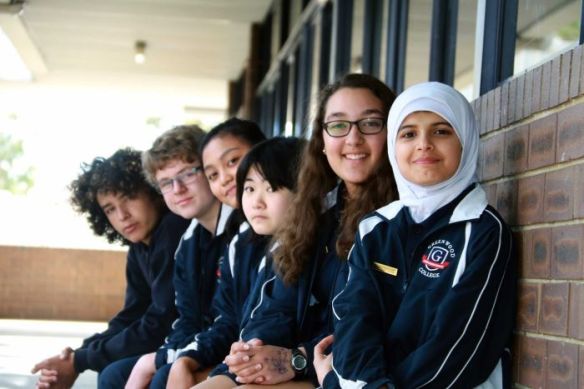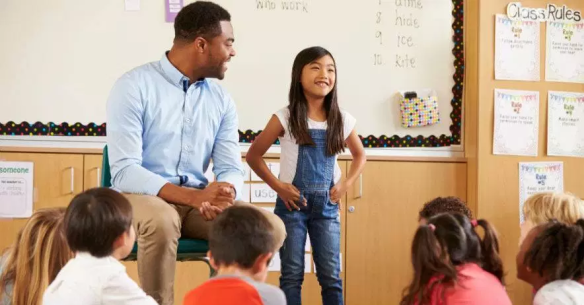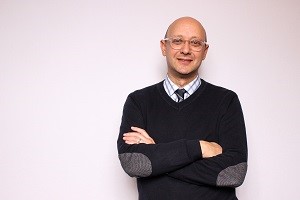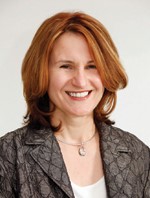Christine Hingston has worked as a language teacher for over 30 years old, and her lifetime of dedication towards teaching students of all ages is finally being recognized.
Hingston, who is currently the English Learner (EL) program teacher at Roberts Elementary School in Medford, recently learned she was selected as this year’s Massachusetts Association of Teachers of Speakers of Other Languages (MATSOL) Teacher of the Year Award, and she was shocked when she learned the news.
“I thought it was a mistake,” she said with a laugh. “I looked at the email and I’m like, ‘Wait a minute. Is this a joke?’ I was really astounded.”
MATSOL has a three-day conference every year, and each year, they honor an EL teacher in Massachusetts for great teaching performance in the field. The award applies to all EL teachers in the state from kindergarten through grade 12, and Hingston will receive the award on May 30 at this year’s conference.
“They always give this award out and different teachers nominate someone,” Hingston explained. “They reached out to people in Salem. They reached out to a past student so they really worked hard at it which is fantastic.”
Hingston found out she was going to receive the award around two weeks ago, and she really appreciated that her fellow teachers nominated her.
“I was really shocked,” Hingston said. “The fact that they nominated me was very touching. Everybody is busy. There are other EL teachers here and they are so busy with their jobs. [The fact] they found time to collect evidence on me was pretty heartwarming and thoughtful.”
The MATSOL nomination committee chooses the candidate based on a variety of factors, such as showing a long-term commitment to the education of English learners, demonstrating leadership qualities, mentoring others, fostering a relationship with the kids, parents and the community, supporting new teachers in the field and being a successful te acher.
“Ms. Hingston has demonstrated all of these attributes to the highest degree, and she serves as an exemplary role model to her colleagues at the Roberts and throughout the district,” Medford Public Schools Public Information Officer Lisa Evangelista wrote on her blog.
Hingston was recently honored at the School Committee meeting where she received a certificate for her great work, and she was also recognized at the School Department meeting and received flowers for her achievement.
“It was really nice,” Hingston. “It was something I never would have expected.”
Hingston even mentioned she received an email from a past student who learned about her award.
“She emailed me, telling me how happy she was,” Hingston said. “I couldn’t believe it. It was pretty cool.”
Love for teaching
Hingston started her career in Lawrence in bilingual education teaching Spanish, and she then went to Japan to teach English to adults. However, she had four kids, and she eventually switched to teaching part time at Bunker Hill Community College as an adjunct professor teaching English to students.
She then went back to work full time into elementary public education in Salem, where she was for eight years, and then went to Medford six years ago.
“I love Medford,” she said. “The students that are here are lucky to be in this program because it’s a good program, we have a good coordinator, the principals are really supportive and the teachers work well together. It’s a wonderful community.”
Hingston teaches English and other basic subjects to one fifth grade class of 16 immigrant students, and the kids speak a variety of languages in the class, such as Portuguese, Arabic, Chinese, Haitian Creole and Spanish.
“They are all students that come from other countries,” Hingston explained. “It’s amazing how quickly the kids pick up English. Yes we teach them English but through content. It’s like a regular class. They are not yet ready for the mainstream classroom.”
Hingston further explained how her class works.
“Kids come here and they have to learn grade level curriculum in another language,” she said. “Some of the kids, this is their second year here. They have English but their writing and reading isn’t strong enough but they quickly pick it up.”
“I enjoy the kids the most,” she continued. “It is always something new. They are amazing, always learning new things and teaching me things, which is incredible.”
Hingston said she really likes working with the students from other countries because many of them have very challenging life circumstances.
“I enjoy it because they are just so earnest and sincere, and they have all come here with a dream in mind,” Hingston said. “Not to make it sound like a cliché, but they all have come here looking for an opportunity. Their families are all working really hard. They think it’s wonderful to be here. They love America. Many of them are separated from their families. They may just be with their dad and their mom is back there so it’s really difficult for a lot of these kids.”
Although Hingston is teaching them English and other subjects, she noted that helping the students emotionally is a large part of the job as well.
“The emotional piece is big,” Hingston said. “It’s not just the curriculum. Adjusting to maintaining your own culture but also adopting a new culture, doing them both is tough.”
Although it is challenging helping these kids emotionally, she said it is her favorite aspect of the profession.
“I love that part of it,” she said. “When I became a Spanish speaker and studied it and taught in Spain for a bit, I knew that I wanted to be involved in different cultures. It makes you more open minded.”
Hingston said the whole class is taught in English, but she will often clarify things in other languages or even get help from other students in the class as well.
“I will use students to translate,” she explained. “A good student in math who understands something may help someone who is struggling. We learn right away that we are using the native language in class to clarify information.”
Hingston also added she utilizes an app that helps her communicate important information to parents.
“I can text a message to the parents and it translates it,” she said. “The parents can text back in their language and it texts me back in English, and I am on this all the time. There is so much communication now between the teachers and the parents.”
Overall, she loves what she does every single day.
“I’ve been teaching a lot of years,” Hingston said. “I love my experience in Medford. It is very supportive. The kids are great. The parents are great.”
Hingston doesn’t know how many years she will have left teaching, but she knows she is going to end her teaching career in Medford.
“I feel blessed to have come to Medford,” Hingston said. “Medford has been just so welcoming. There are so many different languages. It really is a nice community.”

 At the 2019 MATSOL Conference, you will find multiple workshops to help you use student strengths, building on their own funds of knowledge. You will learn strategies for recognizing and celebrating student identity and culture and explore social-emotional learning; trauma-informed practice; impact of poverty on learning; and creating physically and emotionally safe environments.
At the 2019 MATSOL Conference, you will find multiple workshops to help you use student strengths, building on their own funds of knowledge. You will learn strategies for recognizing and celebrating student identity and culture and explore social-emotional learning; trauma-informed practice; impact of poverty on learning; and creating physically and emotionally safe environments.







 With your support, the LOOK Act passed in 2017. This groundbreaking law:
With your support, the LOOK Act passed in 2017. This groundbreaking law: